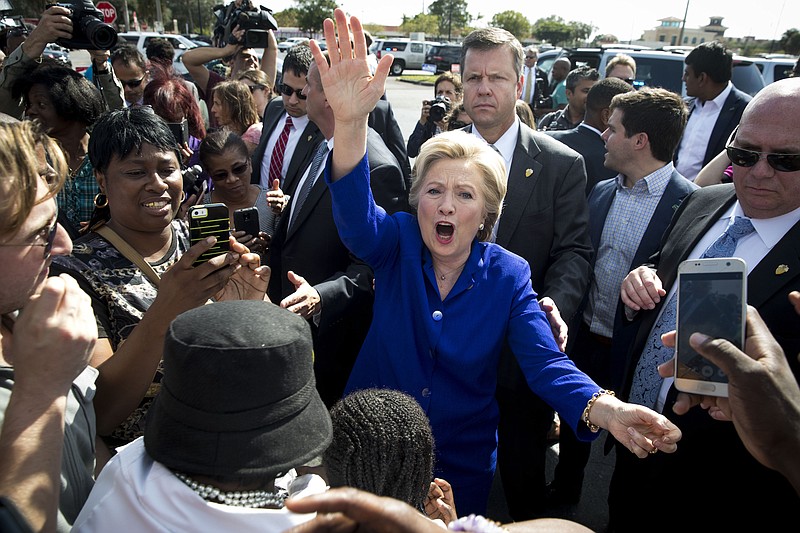Nearly 30 years after President Gerald Ford pardoned former President Richard Nixon for any crimes he may have committed, Ford said he knew the month he granted the pardon he'd done the right thing.
"I can only say this," he told NBC's Brian Williams in 2003. "I knew in September of 1974 that I made the right decision in pardoning Richard Nixon. I was spending, in that first month, about 25 percent of my time on Mr. Nixon's tapes, Mr. Nixon's papers, Brian. I finally came to the conclusion that I had an obligation as president to spend 100 percent of my time on the problems of 180 [to 190] million Americans. So if you put it in that context, it's pretty easy. I made the right decision."
Earlier this week, President-elect Donald Trump said he didn't plan to pursue an investigation of former Secretary of State Hillary Clinton, his Democratic opponent for president and the woman he called "Crooked Hillary" throughout much of the campaign.
We believe that's the right call for him to make in an effort to unify the country, but we're not sure that's the last word that ought to be said about her misdeeds.
Traditionally, it is the legislative branch's purview to look into such things - as it already has over the last several years - but Trump said on the campaign trail he might ask the attorney general in a potential administration to further examine the scandal involving the illegal email server Clinton used while she was secretary of state, and later repeatedly lied about, and the pay-for-play scheme that appeared to exist between her family's foundation and her role as the nation's top diplomat.
While her minimizing, blame-casting and obfuscating about the email server did much to erode her trustworthiness in the eyes of the electorate, we think that issue can be put to rest. Her last use of the server was nearly four years ago. If it was hacked, it was hacked, and we must hope little to no classified information was passed into the wrong hands.
However, we think any current investigation by the FBI or probes underway by Congress on the pay-to-play scheme ought to at least run their course. Trading with other nations through her governmental position for personal gain, or gain for her family's foundation, if that is in fact what she did, is a serious offense. It's a type of bribery and has no business at the highest level of the federal government.
Trump, though, by not suggesting a special prosecutor or a new round of congressional inquiry, would be able to spend - as Ford said - "100 percent of my time on the problems of Americans."
Minus Clinton, he has enough to deal with in enforcing immigration laws, creating a business climate in which more and better jobs are created, and helping unwind a health care program that has cost Americans trillions of dollars.
"I think when the president-elect, who's also the head of your party now, tells you before he's even inaugurated he doesn't wish to pursue these charges, it sends a very strong message, tone and content, to the members," Kellyanne Conway, the president-elect's campaign manager, said. "And I think Hillary Clinton still has to face the fact that a majority of Americans don't find her to be honest or trustworthy, but if Donald Trump can help her heal, then perhaps that's a good thing."
While Trump's recent statements about not pursuing Clinton could have the same effect on the country as Ford's pardon of Nixon, in the sense of creating more focus on the nation's problems, there are also differences.
Ford, as chief executive, pardoned a former president, one of the same political party and the very man who appointed him to be a heartbeat away from the presidency. Trump would be making the decision not to seek action - or give a nod to further congressional investigation - against a member of a different political party and someone who was a presidential candidate but not a president.
Nixon's successor had the power to pardon the former president; Trump, though president-elect, is only a private citizen and only can make non-binding statements until he takes office.
In the meantime, President Obama is surely weighing whether or not to pardon Clinton for any crimes she may have committed, though she, like Nixon, has not been charged with or convicted of a crime. Obama has supposedly said he did not want to make any political pardons in his last days in office, but he could want to short-circuit any further probes that would damage any legacy he believes he has.
As his time runs out, he'll no doubt do whatever serves him best. We believe Trump's non-pursuit of Clinton, in the long run, will serve the country best.
